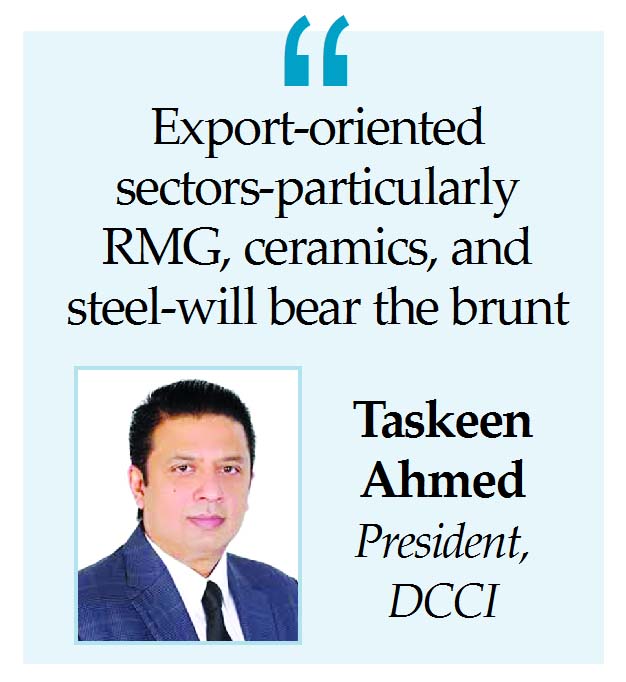Gas rates up 33pc for new industries

Reza Mahmud :
Despite strong opposition from consumer advocacy groups and industry representatives, the Bangladesh Energy Regulatory Commission (BERC) has announced a fresh increase in gas tariffs for new industrial users.
The revised rates, effective from 13 April, reflect a 33 per cent hike for new connections under both general industrial and captive power categories.
Business leaders expressed surprise and concern over the decision, warning it could severely hamper industrial growth. They urged the government to reconsider the move in order to safeguard one of the country’s most critical economic sectors.
Speaking to The New Nation on Sunday, Dhaka Chamber of Commerce and Industry (DCCI) President Taskeen Ahmed said, “We express deep concern over the BERC’s decision to raise gas prices in the industrial sector by 33 per cent.”
He added that increasing prices without ensuring an uninterrupted gas supply poses a major challenge for industrial operations.
“This hike will significantly raise the cost of doing business, undermine investor confidence, and diminish the prospects of establishing new industries. Export-oriented sectors-particularly RMG, ceramics, and steel-will bear the brunt, as they are heavily dependent on gas,” Ahmed said.
He further noted that the move would weaken Bangladesh’s competitive position in global markets, while small and medium-sized enterprises would struggle to absorb the additional costs. While acknowledging the government’s revenue goals, he stressed the need for timely policy support to ensure sustainable industrial growth.
Former DCCI President Ashraf Ahmed echoed similar concerns. “This increase will impact three energy-intensive industries-textiles, cement, and steel-which in turn will affect the RMG and construction sectors. Inflationary pressure may also rise,” he said, noting that the hike was applied exclusively to industrial users.
The revised tariff structure raises the rate for newly approved industrial connections to Tk 40 per cubic metre from Tk 30. For captive power usage, the rate has increased from Tk 31.50 to Tk 42.
The hike applies to all connections approved on or after 13 April. Additionally, applicants who submitted connection requests prior to this date will also be subject to the revised rates if their consumption exceeds 50 per cent of the approved load.
The announcement was made at a press conference held at the BERC office in Karwan Bazar, Dhaka. BERC Chairman Jalal Ahmed attributed the increase to growing dependence on expensive imported liquefied natural gas (LNG) amidst declining domestic gas reserves.
He stated that Petrobangla, the state-run oil, gas, and mineral corporation, had proposed a 150 per cent increase in tariffs to offset the rising cost of LNG procurement.
“We opted for a lower increase to ensure affordability. Had we fully accounted for the revenue requirements, the adjustment would have been significantly higher,” said the BERC chairman.
However, the decision has drawn criticism over its lack of transparency. No detailed revenue projections were disclosed, and the commission confirmed that government subsidies were not considered in the pricing calculation-raising questions about the methodology used.
When asked whether the Ministry of Power, Energy and Mineral Resources influenced the pricing decision, Chairman Ahmed denied any such involvement. He also dismissed concerns that differentiated pricing between new and existing users could face legal challenges, asserting that BERC acted within its legal remit.
The latest hike has added another layer of financial strain to Bangladesh’s industrial sector, which continues to grapple with rising input costs and persistent uncertainty in energy supply. The increase follows a substantial adjustment in January 2023, when gas tariffs for industrial use were raised by 150 to 178 per cent to address supply issues.
While BERC maintains that it is too early to gauge the long-term investment impact, business leaders warn that unless pricing, supply, and regulatory frameworks are made more predictable, the industrial sector may struggle to retain its growth trajectory.
